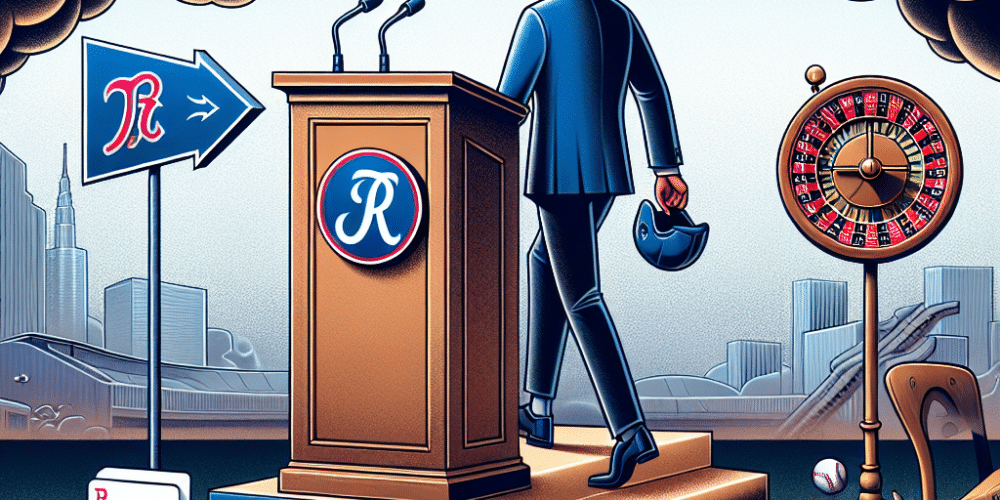Mike Shildt, who has been a pivotal figure in leading the San Diego Padres through some of their most successful seasons, has announced his departure from the team, concluding a remarkable 34-year tenure in baseball.
On the heels of two impressive playoff seasons, Shildt made the difficult decision to resign, citing the toll on his mental health and the increasing pressures brought on by the expanding world of sports gambling. Despite having two years remaining in his contract, the 57-year-old’s departure marks a significant moment in Major League Baseball, as he steps away from a role that has become increasingly demanding.
The announcement, made public this past Monday, sent shockwaves through the baseball community, as reported by The San Diego Union-Tribune. Shildt’s leadership had propelled the Padres to consecutive 90-win seasons, and yet, the personal cost had escalated to an unsustainable level. In candid interviews following his resignation, Shildt revealed the struggle that had begun to affect him as early as August, with stress severely impacting his sleep and overall well-being. He also disclosed receiving threats from disgruntled bettors—a troubling trend that has been escalating across professional sports landscapes.
Exhaustion, Shildt explained, had become overwhelming, prompting his decision to place his health above all else. The relentless pressure of managing a top-tier team, compounded by the ire of fans whose financial stakes ride on each game, had taken a significant toll on his mental state. Reports indicate Shildt was experiencing physical symptoms of stress, including chest pains and hair loss, during the 2025 season—a testament to the intense environment in which he operated.
Shildt’s departure shines a light on the broader implications of legalized sports betting within Major League Baseball. The issue extends beyond the individual, as recent polling reveals nearly 80% of players believe legalized gambling has worsened fan behavior, with many reporting hostile or threatening interactions post-game. Anonymously, one player observed that bettors have started treating athletes more as financial investments rather than human beings, echoing the sentiments underlying Shildt’s concerns.
The Padres’ president of baseball operations, A.J. Preller, reflected on Shildt’s tenure with the team, describing it as an era marked by dedication, passion, and success. Preller emphasized the team’s commitment to swiftly finding a new manager, with aspirations of securing a playoff berth in 2026. Shildt leaves behind a legacy of achievement, with a career win record of 56.1% and playoff appearances in five of his six full managerial seasons, split between St. Louis and San Diego. His focus on fundamental baseball principles brought much-needed stability to the Padres, a franchise previously characterized by volatility.
In a heartfelt farewell, Shildt expressed gratitude towards his players and the organization, yet made it unequivocally clear that his health and inner peace are now his primary focus. The narrative of his departure serves as a sobering reminder of the multifaceted pressures faced by sports professionals in today’s era.
Critics of Shildt’s decision argue that heightened stress and gambling-related pressures are inherent to professional sports and suggest that more robust systems of support might have mitigated his need to resign. They highlight the importance of comprehensive mental health resources within teams, which could help managers and players alike navigate the complexities of modern sports.
Conversely, others applaud Shildt’s decision to prioritize his well-being, advocating for a broader industry recognition of the human cost of escalating commercial pressures. This perspective calls for a reevaluation of how teams and leagues support their personnel, particularly in light of legalized gambling’s pervasive impact.
As the Padres move forward, the void left by Shildt is not merely a managerial vacancy but a call to action for the sports community to address the increasingly intertwined relationship between sports and gambling. Shildt’s story is a poignant illustration of the personal sacrifices that lie beneath the surface of high-profile sports management, urging stakeholders to consider the broader implications for the future of the game.

Garry Sputnim is a seasoned journalist and storyteller with over a decade of experience in the trenches of global news. With a keen eye for uncovering stories that resonate, Alex has reported from over 30 countries, bringing light to untold narratives and the human faces behind the headlines. Specializing in investigative journalism, Garry has a knack for technology and social justice issues, weaving compelling narratives that bridge tech and humanity. Outside the newsroom, Garry is an avid rock climber and podcast host, exploring stories of resilience and innovation.
















